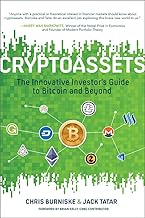
Cryptoassets: The Innovative Investor's Guide to Bitcoin and Beyond
Chris Burniske and Jack Tatar
4.6 on Amazon
3 HN comments

Fate: Return to Avalon: Takeuchi Takashi Art Works
Type-Moon and Takeuchi Takashi
? on Amazon
3 HN comments

Mastering Ethereum: Building Smart Contracts and DApps
Andreas M. Antonopoulos and Gavin Wood Ph. D.
4.6 on Amazon
3 HN comments

Fundamentals of Software Architecture: An Engineering Approach
Mark Richards, Neal Ford, et al.
4.6 on Amazon
3 HN comments
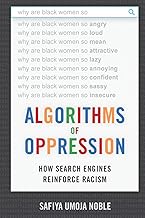
Algorithms of Oppression: How Search Engines Reinforce Racism
Safiya Umoja Noble
4.7 on Amazon
3 HN comments

Storytelling with Data: Let's Practice!
Cole Nussbaumer Knaflic
4.6 on Amazon
3 HN comments

Introduction to Machine Learning with Python: A Guide for Data Scientists
Andreas C. Müller and Sarah Guido
4.5 on Amazon
3 HN comments
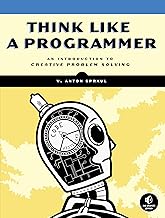
Think Like a Programmer: An Introduction to Creative Problem Solving
V. Anton Spraul
4.7 on Amazon
3 HN comments

Logo Design Love: A Guide to Creating Iconic Brand Identities, 2nd Edition
David Airey
4.7 on Amazon
3 HN comments

Python 3 Object-Oriented Programming: Build robust and maintainable software with object-oriented design patterns in Python 3.8, 3rd Edition
Dusty Phillips
4.4 on Amazon
3 HN comments

Threat Modeling: Designing for Security
Adam Shostack
4.5 on Amazon
3 HN comments
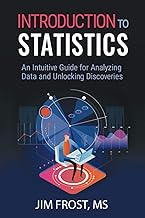
Introduction to Statistics: An Intuitive Guide for Analyzing Data and Unlocking Discoveries
Jim Frost
4.3 on Amazon
3 HN comments
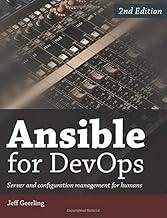
Ansible for DevOps: Server and configuration management for humans
Jeff Geerling
4.6 on Amazon
3 HN comments

Technology Strategy Patterns: Architecture as Strategy
Eben Hewitt
4.3 on Amazon
3 HN comments
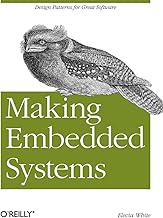
Making Embedded Systems: Design Patterns for Great Software
Elecia White
4.6 on Amazon
3 HN comments
LowkeylokionApr 6, 2019
If that topic interests you, I can recommend Weapons of Math Destruction by Cathy O'Neil, and Algorithms of Oppression by Safiya Noble.
I'm a programmer myself, so I understand if people are initially defensive about these topics. But it's important to me that I never write software that's harmful to people, so I try to check my biases as I create software to avoid these more insidious issues. It's easier to spot issues that may arise due to programming machinery that could crush a person, for example. Or software designed to estimate fuel usage for an airplane. It's much more difficult to spot inequity of minorities in software.
There's plenty of examples out there of biased AI in response to biased training sets.
If you're more interested in the dystopia that must be created in order to "win" SimCity, here's a couple of interesting articles. (I think they've been shared here before.) By taking the game to its absolute extremes, it becomes clearer what the simulation considers most important and valuable, thereby laying bare some of the biases inherent in the game's design.
https://rumorsontheinternets.org/2010/10/14/magnasanti-the-l...
https://www.vice.com/en_us/article/4w4kg3/the-totalitarian-b...
grzmonMar 28, 2018
Examples of how the author is approaching the topic more generally are found in headings such as "Content and Creators" and phrases like "Information monopolies such as Google". The author's book is likewise entitled "Algorithms of Oppression: How Search Engines Reinforce Racism", not "How Google Reinforces Racism".
I agree that results in Bing and Duck Duck Go, for example, currently show a lot of the flaws describe in the article. But the point (as much as the headline may lead you to believe) isn't that it's only Google.
NomentatusonMar 26, 2018
Not exactly. YouTube sends everybody down rabbit holes, because it adores sticky topics and video sources (more views, more $), and so rewards those who create a bit of an information monopoly by simply lying; after which, one of their videos leads you to another one of their videos. Nobody else is making videos on that, 'cause you made it up. You win. Novel "information" is more likely to be viewed through, and then followed up on with searches for more on the topic. So make up, and YouTube is all about you, thrilled to facilitate the niche info-market you've created out of thin air or wildly exaggerated.
Merely having your own misleading phrases to refer to your bent views will be heavily rewarded by search engines including Google's and YouTube's. For example:
"I wrote about this in my new book, Algorithms of Oppression: How Search Engines Reinforce Racism. In it, I discuss Dylann Roof, the Charleston mass murderer, who said he Googled the phrase “black on white crime” after the Trayvon Martin shooting. He has talked about how important that experience was in forming his white supremacist views. He noted in his online diary that when he Googled the phrase “black on white crime,” the search engine gave him information that shocked him—and helped him come to a different understanding about the so-called truth about race and the value of a multiracial society.
That’s because his search only returned the white supremacist websites that use such a phrase—a phrase that is used by hate-based sites to radicalize white Americans against African Americans and other people of color, including Jewish people. Google didn’t provide any context on the white supremacist movement. It didn’t provide any counterpoints of view."
https://logicmag.io/03-engine-failure/